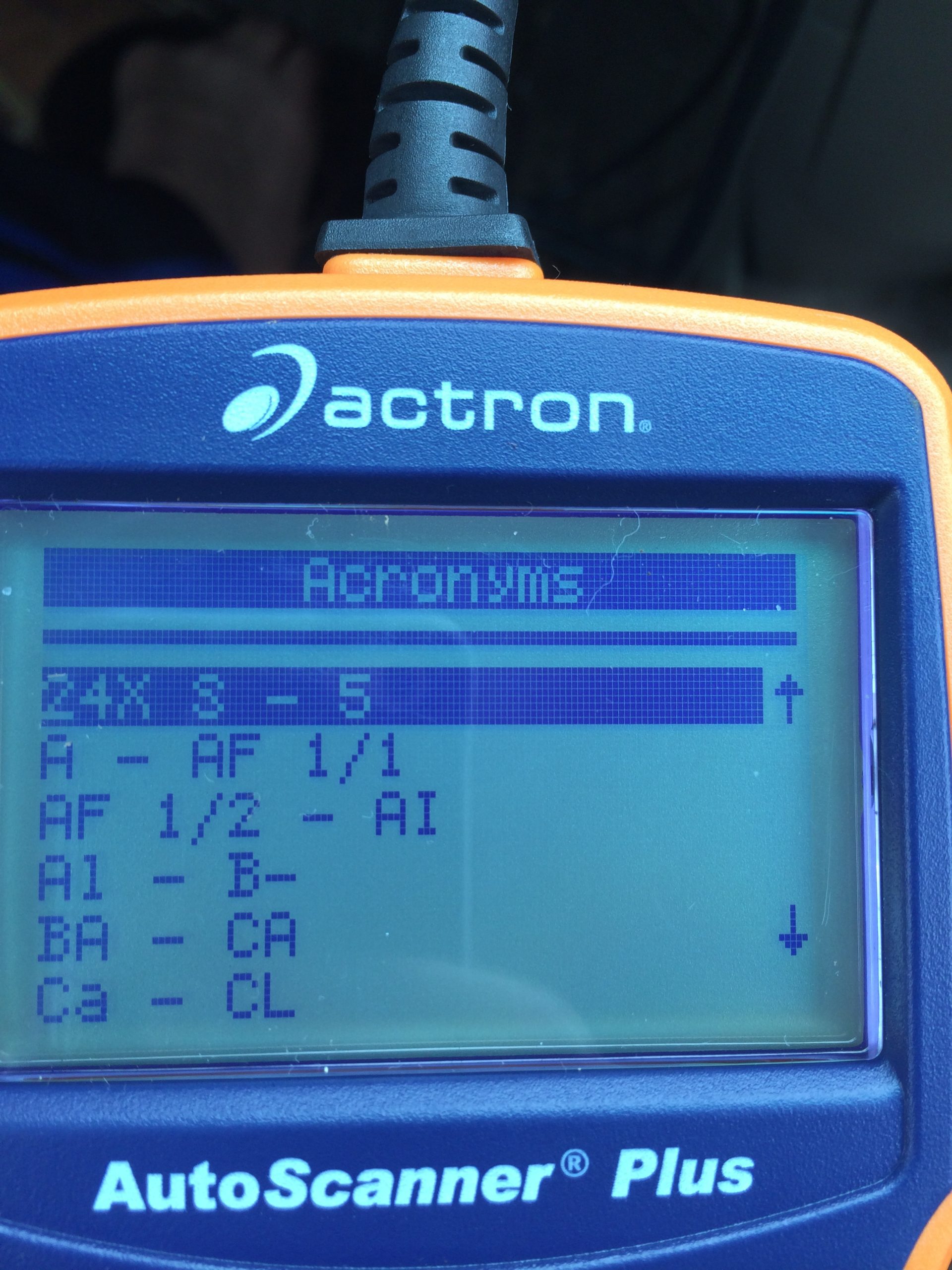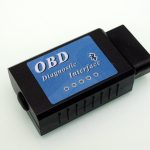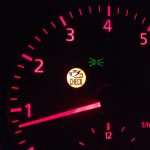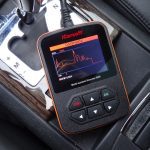Table of Contents
- Understanding P1301 Error Code
- Symptoms of a P1301 Code
- How to Fix P1301
- Preventing P1301 from Happening Again
- Frequently Asked Questions
- What other engine error codes could indicate similar issues as P1301?
- Can the P1301 error code cause damage to other parts of the engine?
- Is it safe to continue driving with the P1301 error code present?
- Can the P1301 error code be caused by environmental factors, such as extreme temperatures or high altitude?
- Are there any common mistakes that can be made during the fixing process that could worsen the issue?
- Conclusion
If you’ve been driving your car and suddenly the check engine light comes on, it could be a sign that something is wrong with your engine. One of the most common error codes that drivers experience is P1301.
This code is related to issues with the ignition system, and if left untreated, can cause serious damage to your vehicle. In this article, we’ll take an in-depth look at the P1301 engine error code.
You’ll learn about the potential causes of this issue, as well as the symptoms that indicate a problem may exist. We’ll also provide you with some tips on how to fix P1301 and prevent it from happening again in the future.
So buckle up, because we’re about to dive deep into one of the most frustrating problems that any driver can encounter!
Understanding P1301 Error Code
Now that you’re diving into understanding P1301, let’s explore what this pesky little issue means for your vehicle.
The P1301 error code is a generic powertrain trouble code that indicates there is an issue with the ignition system or engine misfire. This code could indicate a serious problem with your vehicle’s performance, so it should be diagnosed as soon as possible.
Causes and diagnosis of P1301 error code vary depending on the type of vehicle. In general, the most common cause of this error code is a faulty ignition coil or spark plug. Other potential causes include wiring issues, damaged sensors or circuits, and even a dead battery.
To diagnose this issue properly, you will need to use an OBD-II scanner to read the fault codes stored in your car’s computer.
Common vehicles affected by P1301 error code include BMWs, Fords, Mazdas, and Volkswagens. However, any make or model can experience this issue.
If you notice any symptoms such as rough idling or stalling when driving at low speeds or under load conditions – it might be time to have your car checked out by a professional mechanic who will perform proper diagnostics to fix the problem before it becomes more severe.
Remember that diagnosing and fixing P1301 Error Code requires technical knowledge and skillset. Therefore, if you’re uncomfortable working on cars, don’t hesitate to take your vehicle to a licensed professional for repair services.
Symptoms of a P1301 Code
You’ll notice your car running rough and a lack of power when the P1301 code is present. In addition to these symptoms, there are other indications that something is not right with your vehicle. Here are some signs that you may be experiencing a P1301 code:
- The engine warning light turns on.
- The fuel efficiency decreases.
- The engine misfires.
If you’re experiencing any of these symptoms, it’s important to diagnose the issue as soon as possible. Ignoring the problem can lead to further damage to your vehicle, and potentially more costly repairs down the road.
A qualified mechanic will typically use an OBD-II scanner to read the error codes stored in your car’s computer system. This tool will help identify which component or system is causing the issue.
Once you know what’s causing the P1301 error code, it’s time to fix it. There are several potential causes for this issue, including faulty ignition coils, damaged spark plugs, or issues with wiring or connections within the ignition system.
Depending on what’s causing the problem, fixing it could involve simply replacing a single component or making more extensive repairs throughout the ignition system. In summary, if you’re experiencing an engine error code P1301 while driving your car, pay close attention to any related symptoms such as rough running or decreased power output.
Diagnosing and fixing this problem requires technical knowledge and expertise in automotive repair, so don’t hesitate to seek professional help from a qualified mechanic if needed!
How to Fix P1301
If you want to get your car running smoothly again and avoid costly repairs, it’s time to tackle the P1301 issue head-on and have a qualified mechanic diagnose and repair the underlying problem.
One of the most common triggers for this error code is a faulty ignition coil or spark plug. So, if you suspect that this is causing the issue, then it’s important to replace them immediately.
Another DIY solution that can help fix P1301 is cleaning or replacing the mass airflow sensor (MAF). A dirty MAF can cause an imbalance in air-fuel mixture, which can lead to engine misfires. You can clean it yourself using a specialized cleaner or simply replace it altogether.
Lastly, if these solutions do not work, then there may be more complex issues at play such as problems with fuel injectors or wiring faults. In this case, it’s best to take your vehicle to a professional mechanic who has experience handling engine errors like P1301. They’ll likely use specialized diagnostic tools to pinpoint the exact problem and provide appropriate solutions without breaking the bank.
Preventing P1301 from Happening Again
To avoid future headaches and unexpected car troubles, make sure to keep up with routine maintenance such as replacing worn-out parts and cleaning filters to keep your vehicle running like a well-oiled machine. This is especially important when it comes to preventing the occurrence of engine error code P1301.
Here are some common triggers and maintenance tips that can help you prevent this issue from happening again:
- Check the ignition system – A faulty spark plug or ignition coil can lead to misfires that trigger P1301. Make sure to regularly check these components and replace them if necessary.
- Keep your fuel system clean – Dirt, debris, and other contaminants in your fuel system can cause blockages that result in lean air/fuel ratios and misfires. Change your fuel filter regularly, use high-quality gasoline, and consider using a fuel injector cleaner periodically.
- Address electrical issues promptly – Faulty wiring or malfunctioning sensors can cause P1301 codes even if there’s nothing wrong with the engine itself. Be proactive about addressing any electrical issues you notice before they become bigger problems.
By following these tips for preventing P1301 from happening again, you’ll not only avoid costly repairs but also ensure that your vehicle runs smoothly for years to come without any sudden surprises or breakdowns.
Remember that regular maintenance is key to keeping your car in top shape!
Frequently Asked Questions
What other engine error codes could indicate similar issues as P1301?
If you’re dealing with an engine error code P1301, there are other codes that could indicate similar issues. Possible causes include faulty ignition coils or spark plugs, a malfunctioning mass airflow sensor, or a clogged fuel injector.
To troubleshoot the issue, check for any loose connections in the electrical system and inspect the ignition coils and spark plugs. You can also use diagnostic tools like an OBD-II scanner to identify any additional trouble codes and pinpoint the exact problem area.
Once you’ve identified the root cause, repair options may include replacing faulty components or cleaning out clogged injectors. It’s important to address these issues promptly to avoid further damage to your engine.
Can the P1301 error code cause damage to other parts of the engine?
If left unaddressed, the P1301 engine error code can indeed cause damage to other parts of your engine.
This is often due to the fact that the issue causing the error code in the first place is related to a misfire or timing problem within your ignition system.
As such, if you continue driving with this issue, you run the risk of damaging your catalytic converter or even your engine itself.
Repair costs for these types of issues can be quite high, so it’s important to take preventative measures and have any potential issues addressed as soon as possible.
Regular maintenance checks and prompt attention to warning signs can help prevent costly repairs down the line.
Is it safe to continue driving with the P1301 error code present?
Continuing to drive with the P1301 error code present can pose potential dangers to your vehicle. The error code indicates a fault in the ignition system, which affects the engine’s performance and can lead to further issues if left unchecked.
Ignoring the error code could result in long term consequences such as decreased fuel efficiency or even engine damage. It’s recommended to seek professional advice and repair options as soon as possible to prevent any further damage and ensure safe driving conditions.
Can the P1301 error code be caused by environmental factors, such as extreme temperatures or high altitude?
If you’re driving in extreme weather conditions, it’s possible for the P1301 error code to be triggered by the effects of altitude and temperature.
High altitudes can cause a decrease in air density, leading to decreased engine power and potential misfires that trigger the P1301 code.
Similarly, extreme temperatures can affect spark plug performance and lead to a misfire as well.
To prevent this error code from occurring in these conditions, it’s important to take preventive measures such as ensuring proper spark plug maintenance and using specialized equipment designed for high altitude environments.
Additionally, regular vehicle maintenance checks can help catch any potential issues before they become bigger problems on the road.
Are there any common mistakes that can be made during the fixing process that could worsen the issue?
Common mistakes can worsen the issue when fixing engine error code P1301. Prevention tips include avoiding misdiagnosis, not overlooking other potential issues that could be contributing to the error code, and using proper diagnostic equipment.
Some common mistakes include replacing parts without properly diagnosing the issue, failing to check for related codes or issues, and not following manufacturer guidelines for repairs. It’s also important to ensure that all components are properly connected and installed before attempting to start the engine.
Taking these preventative measures can help avoid making mistakes and further damage to your vehicle’s engine.
Conclusion
In conclusion, the P1301 engine error code can be frustrating for any vehicle owner. However, by understanding the causes and symptoms of this code, you can quickly diagnose and fix the problem.
Addressing this issue as soon as possible is essential to prevent further damage to your vehicle’s engine. To fix a P1301 error code, start by checking the wiring and connections around the ignition coil circuit. If there are no visible issues in that area, you may need to replace the ignition coil or spark plugs.
Remember that prevention is also key when it comes to avoiding future occurrences of this error code. Regular maintenance checks on your vehicle, including replacing spark plugs and other components at recommended intervals, can go a long way in preventing P1301 from happening again.
With these tips in mind, you’ll be well-equipped to tackle any P1301 engine error codes that come your way!









